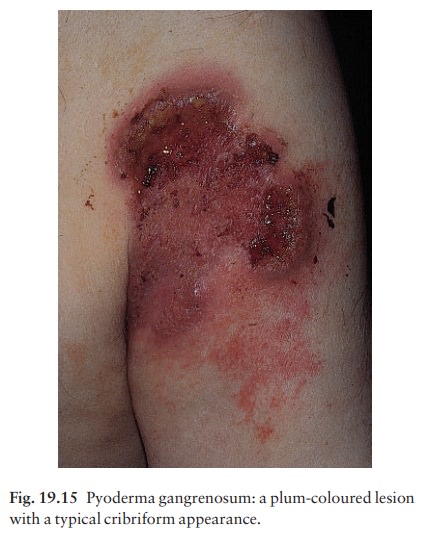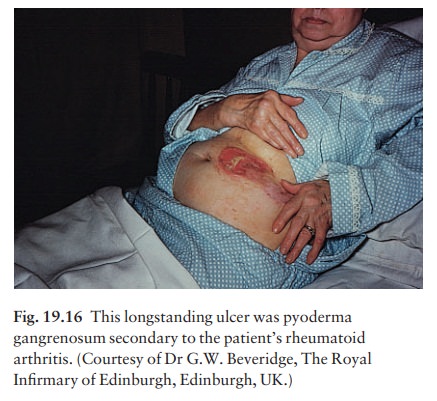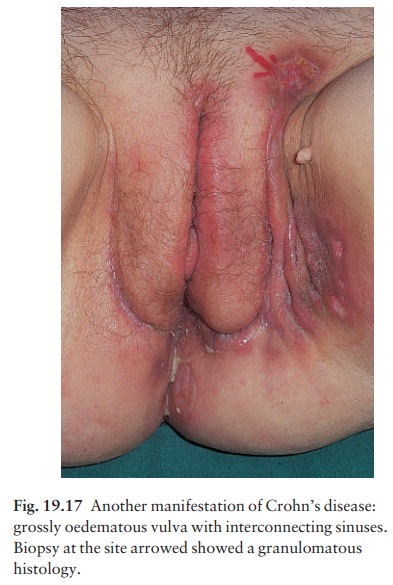Chapter: Clinical Dermatology: The skin in systemic disease
Pyoderma gangrenosum
Pyoderma
gangrenosum
An
inflamed nodule or pustule breaks down centrally to form an expanding ulcer
with a polycyclic or ser-piginous outline, and a characteristic undermined
bluish edge (Fig. 19.15). The condition is not bacterial in origin but its
pathogenesis, presumably immuno-logical, is not fully understood. It may arise
in the absence of any underlying disease, but tends to associ-ate with the
following conditions.

1 Ulcerative
colitis.
2 Conditions
causing polyarthritis, including rheum-atoid arthritis (Fig. 19.16)
3
Crohn’s disease (Fig. 19.17).
4
Monoclonal gammopathies.
5 Leukaemia (with a bullous form of pyoderma).
Lesions
may be single or multiple. If gut disease is present then control of this will
help the pyoderma. Otherwise the condition responds to systemic steroids but
not to antibiotics, and lesions heal leaving papery scars.


Related Topics